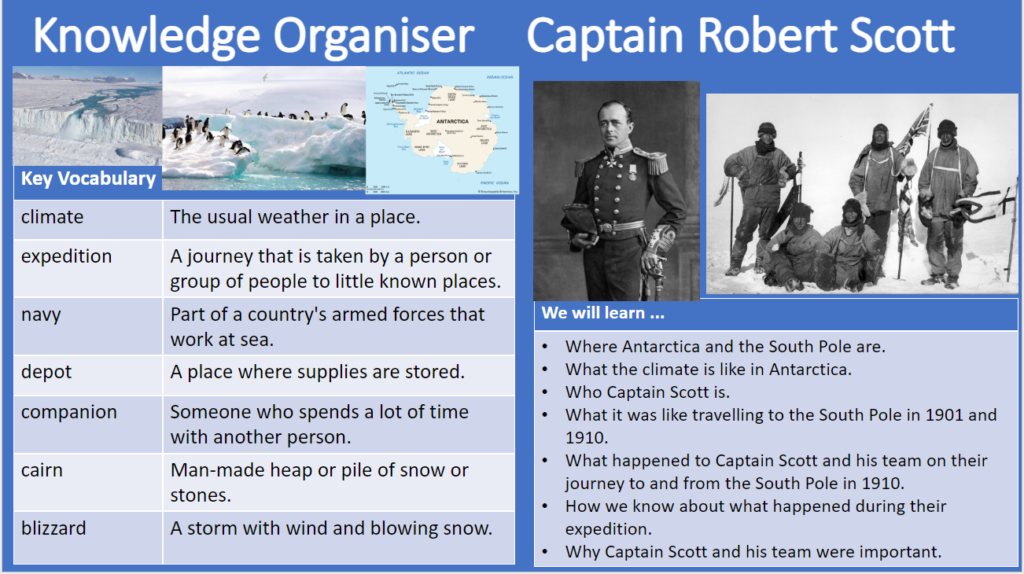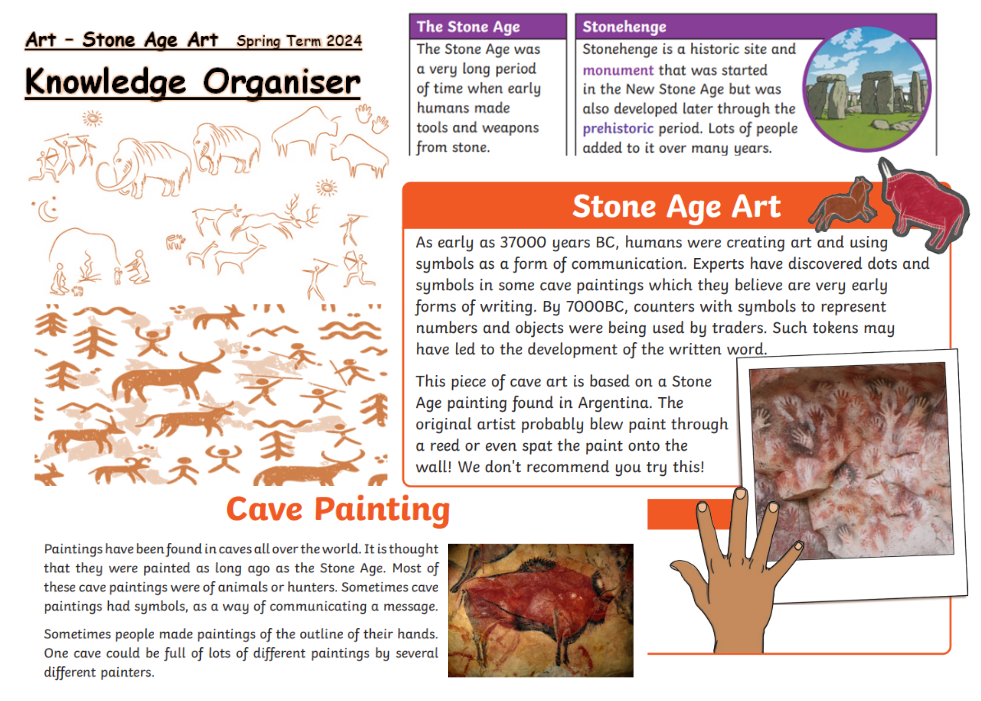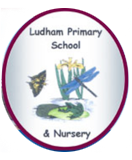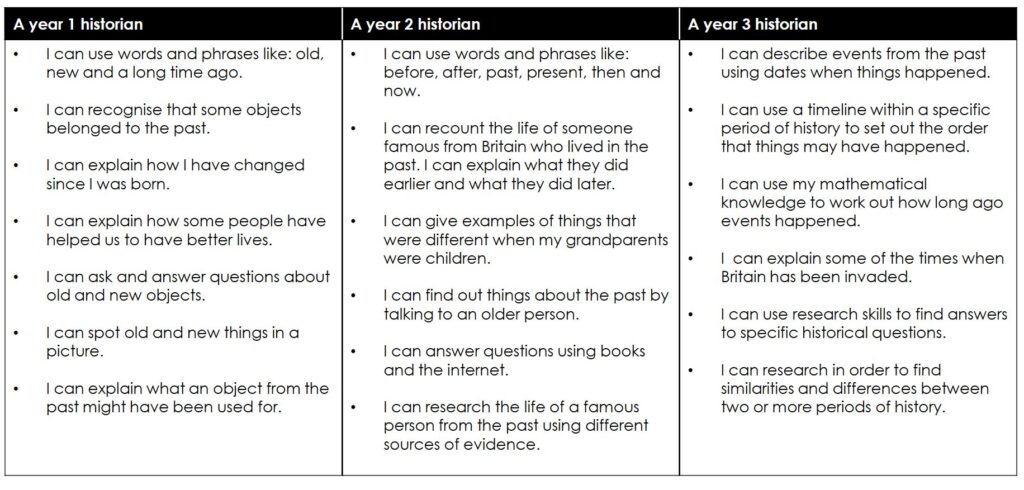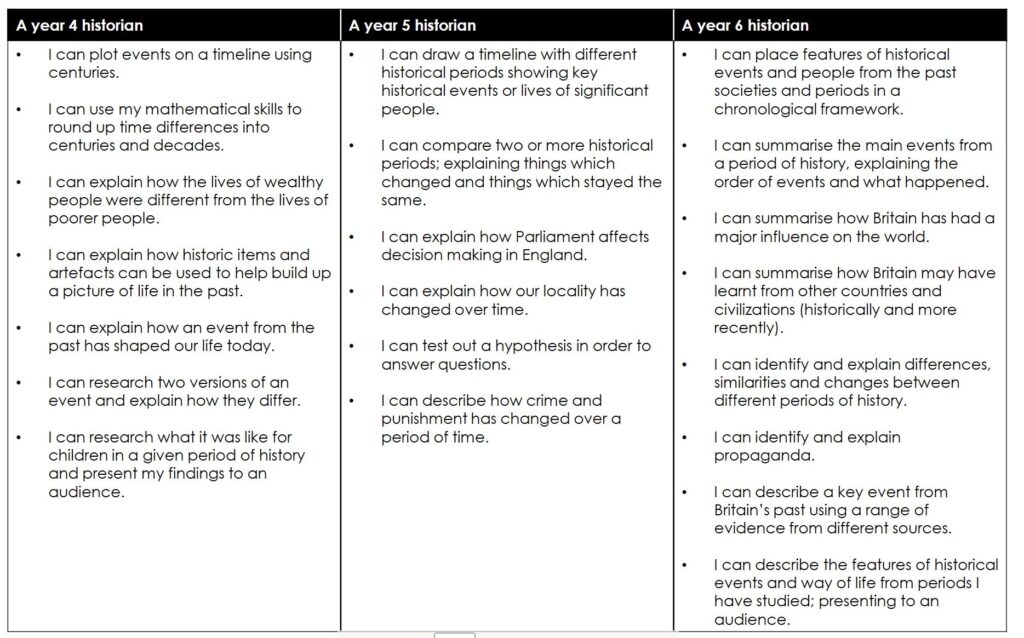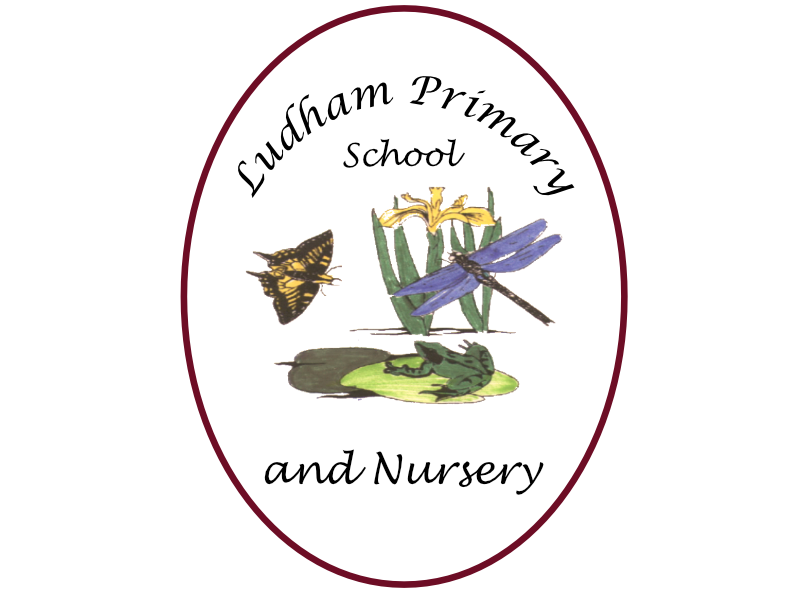INTENT – Why do we teach History?
At Ludham Primary School, we are HISTORIANS! We want our children to love history. We want them to have no limits to what their ambitions are and grow up wanting to be archivists, museum curators, archaeologists or research analysts. Our aim is that, through the teaching of History, we stimulate all children’s interest and understanding about the life of people who lived in the past.
We teach children a sense of chronology, in order to develop a sense of identity and a cultural understanding based on their historical heritage. This enables our children to learn to value their own and other people’s cultures in modern multicultural Britain. We aim to make all children aware of the actions of important people in history and enable children to know about significant events in British history, whilst appreciating how things have changed over time. History will also ensure our children understand how Britain developed as a society, contributing to their understanding of their country of residence.
Furthermore, our children will learn about aspects of local, British and Ancient history. This wider awareness leads to the children having some knowledge of historical development in the wider world. We believe that by allowing the children to understand the importance and enjoyment of History through different opportunities, they will become enthused learners in History.
In History at our school, we will also give children opportunities to develop their skills of enquiry, investigation and analysis.
IMPLEMENTATION – What do we teach – what does this look like?
At Ludham, History is taught in every class, once a week. Topics are blocked to allow children to focus on developing their knowledge and skills, studying each topic in depth. We have developed a progression of skills with each year group, which enables pupils to build on and develop their skills each year.
In KS1, History begins by looking at the children’s own personal history and introduces them to the idea of chronology and timelines. In KS1, History will look at significant events and people who have shaped society, locally, nationally and globally.
In KS2, each year group studies aspects of local history, a British history topic and an ancient history topic. In KS2, UK history is taught chronologically to allow children to confidently place each time period. This allows pupils to consistently build on previous knowledge and learning by placing previously taught History topics on a timeline.
In order to support children in their ability to know more and remember more, there are regular opportunities to review the learning that has taken place in previous topics as well as previous lessons.
At the start of each topic children will review previous learning and will have the opportunity to share what they already know about a current topic.
Children have access to a knowledge organiser at the start of each topic which details some key information, dates and vocabulary. This is not used as part of an assessment, but to support children with their acquisition of knowledge and is used as a reference document.
Effective CPD and standardisation opportunities are available to staff to ensure high levels of confidence and knowledge are maintained.
To support teaching, staff access a range of resources and planning including History Association.
Medium term planning for all units will cover key historical concepts: Chronological understanding, Historical knowledge, Historical interpretation, Historical enquiry and organisation and communication.
Children are given opportunities, where possible, to study artefacts leading to enquiry, investigation, analysis, interpretation, evaluation and presentation.
We plan for effective use of educational visits and visitors, to enrich and enhance the pupil’s learning experience and the History curriculum.
Teachers use highly effective Assessment for Learning at different points in each lesson to ensure misconceptions are highlighted and addressed.
Effective modelling by teachers ensures that children are able to achieve their learning intentions, with misconceptions addressed within it.
Through using a range of assessment tools, differentiation is facilitated by teachers, to ensure that each pupil can access the History curriculum.
Children are given clear success criteria in order to achieve the Learning Intention with different elements of independence.
Pupils are regularly given the opportunity for Self or Peer Assessment, which will then be used to inform planning, preparation, differentiation and address misconceptions within that lesson, or for the next lesson.
Cross-curricular links and ‘Hinterland knowledge’ are planned for, with other subjects such as Maths, Writing and Computing.
Educational, immersive displays that answer key questions help to create a rich learning environment for each History focus.
Our assessment methods allow us to use data to inform future practice.
EYFS
The Early Years Foundation Stage Curriculum supports children’s understanding of History through the planning and teaching of ‘Understanding the World’. This aspect is about how children find out about past and present events in their own lives, their families and other people they know. Children are encouraged to develop a sense of change over time and are given opportunities to differentiate between past and present by observing routines throughout the day, growing plants, observing the passing of seasons and time and looking at photographs of their life and of others. Practitioners encourage investigative behaviour and raise questions such as, ‘What do you think?’, ‘Tell me more about?’, ‘What will happen if..?’, ‘What else could we try?’, ‘What could it be used for?’ and ‘How might it work?’ Use of language relating to time is used in daily routines and conversations with children for example, ‘yesterday’, ‘old’, ‘past’, ‘now’ and ‘then’.
HISTORY – IMPACT
The impact of this curriculum design will lead to outstanding progress over time across key stages relative to a child’s individual starting point and their progression of skills. Children will therefore be expected to leave Ludham reaching at least age-related expectations for History. Our History curriculum will also lead pupils to be enthusiastic history learners, evidenced in a range of ways, including pupil voice and their work.
Year 1 to 6 - End Points
The key assessment criteria for history have been devised in such a way that they can be applied to allow teachers to assess how well children are developing as historians.
Teachers may wish to supplement these key assessment criteria with other criteria if they feel that this adds value. In particular, teachers may wish to add some history subject specific (knowledge) criteria.
In devising the key assessment criteria, consideration has been given to what is age appropriate in line with the key stage programmes of study.
These have been tested and evaluated by class teachers.
There is no suggestion that this is the only ‘correct’ sequence; but rather a suggestion to help teachers plan and assess.
History - Curriculum Map - Cycle A and B
EYFS to Year 6 - History Knowledge organisers
